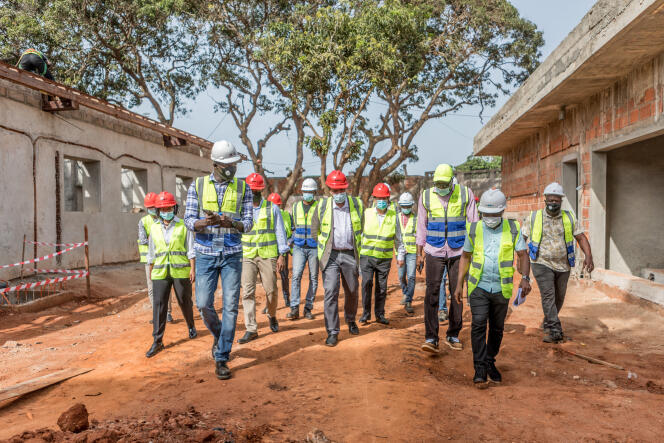


Defense, energy, trade: There is no shortage of sensitive issues between France and Germany. With the aim of revitalizing a deteriorating bilateral relationship, former culture minister Rima Abdul Malak and her German counterpart Claudia Roth found a small area of collaboration: The creation of a research fund to investigate the provenance of cultural goods from sub-Saharan Africa. Managed by the Marc Bloch Franco-German Social Science Research Center, this new fund is due to be officially launched on Friday, January 19, in Berlin.
On both sides of the Rhine, requests for restitution from Africa are pouring in and the subject is hotly debated. Eric-André Martin, secretary general of the study committee on French-German relations at the French Institute of International Relations (IFRI), commented: "France and Germany have understood that this issue is essential for today's dialogue with African countries. And despite their differences, France and Germany have a lot to learn from each other's experiences and mistakes."
Each country will contribute €360,000 per year to the three-year fund, which will operate based on a demand for projects. To be eligible, researchers will have to set up a French-German network with a partner in Africa. The aim is also to intensify collaboration with African professionals, to avoid biased narratives. "Only they can tell us whether objects may have been donated or sold spontaneously by a community, or whether it is impossible that they were simply voluntarily given away," said researcher Felicity Bodenstein, a member of the fund's scientific committee.
Projects involving objects from Cameroon and Togo, two countries colonized by both France and Germany, should be given priority. "However, the methods of extraction were not the same," said historian Bénédicte Savoy, who sits on the scientific committee for the new fund. "The Germans helped themselves first in Cameroon, and a lot of blood was shed to constitute the German collections coming from that country. Whereas the French, who arrived in the 1920s and 1930s, conducted scientific expeditions." The differences do not end there.
Germany is several steps ahead when it comes to provenance research. The scale of collections is also unparalleled. Across the Rhine, every federal state and every town holds thousands of objects. Colonial awareness, on the other hand, is more recent. "Until 2016-2017, Germany did not see itself as a colonial power, and felt that the French and English should put their own house in order," said Savoy.
You have 60% of this article left to read. The rest is for subscribers only.
